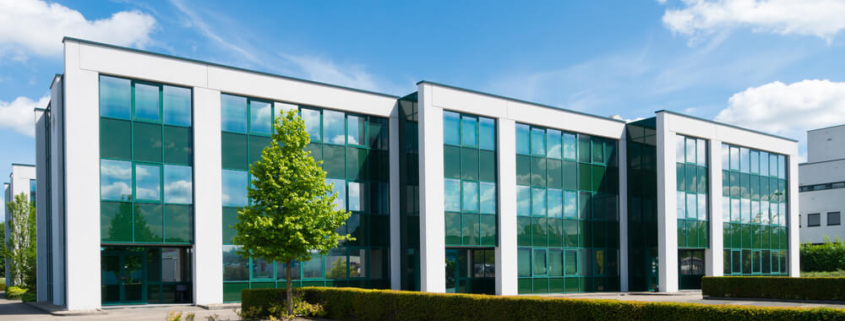Commercial Lease Renewals: Negotiating Terms in a Changing Market
Commercial lease renewals present a critical juncture for businesses as they navigate the ever-changing dynamics of the real estate market. Whether facing economic uncertainties, market fluctuations, or evolving business needs, negotiating favorable terms during a lease renewal is essential for maintaining a stable and cost-effective operational space. Legal representation from a seasoned commercial real estate attorney can help you in the following ways:
Comprehending the Facts
- Market Analysis: Before entering negotiations, businesses must conduct a thorough analysis of the current real estate market. This includes understanding vacancy rates, rental trends, and any economic factors that might impact commercial property leasing. A well-informed assessment provides businesses with valuable insights to leverage during negotiations.
- Reviewing Lease Terms: Begin the renewal process by reviewing the existing lease agreement. Identify areas that may need adjustment or improvement, such as rent escalations, maintenance responsibilities, and lease duration. A clear understanding of the current terms sets the stage for informed negotiations.
Strategic Negotiation Tactics
- Early Communication: Initiate communication with the landlord well in advance of the lease expiration. Early engagement allows for ample time to discuss potential changes, express concerns, and explore mutually beneficial adjustments to lease terms. Proactive communication fosters a collaborative atmosphere, increasing the likelihood of favorable negotiations.
- Leveraging Market Conditions: Utilize market conditions to your advantage. If the market favors tenants, businesses can negotiate for reduced rent, improved lease terms, or added incentives. Conversely, in a landlord’s market, highlighting the stability and reliability of your tenancy may strengthen your position for negotiating favorable terms.
- Flexibility in Lease Structure: Explore flexible lease structures that align with the specific needs of your business. This could include variable rent arrangements, shorter lease terms with renewal options, or provisions for space expansion as your business grows. Flexibility enhances the adaptability of the lease to changing market conditions and business requirements.
- Rent Negotiations: Rental costs are a significant component of lease negotiations. Consider proposing a rent increase tied to a fixed percentage or a predetermined escalation formula. Alternatively, negotiating for a more extended lease term in exchange for a stabilized or reduced rent rate can be a mutually beneficial arrangement.
- Renovation and Maintenance Agreements: Address any necessary renovations or maintenance responsibilities during negotiations. Businesses may negotiate for the landlord to cover certain capital improvements or agree to shared costs. Clarity on maintenance obligations ensures that the property remains in optimal condition throughout the lease term.
- Renewal Incentives: Landlords may offer renewal incentives to encourage businesses to extend their lease agreements. These incentives can include rent abatements, tenant improvement allowances, or other financial concessions. Negotiating for these incentives can significantly impact the overall cost-effectiveness of the renewed lease.
- Exit Strategies: Include exit strategies in the renewal negotiations to provide flexibility in case unforeseen circumstances arise. This could involve negotiating favorable subletting or assignment clauses that allow the business to sublease the space or assign the lease to another party if necessary.
Why it Helps to Have an Experienced Real Estate Attorney on Your Side for Your Commercial Lease Renewal
Renewing a commercial lease is a significant undertaking that involves complex legal considerations. Having an experienced real estate attorney on your side during the commercial lease renewal process provides numerous benefits.
Legal Insights
Real estate laws and regulations are intricate and can vary by jurisdiction. An experienced real estate attorney possesses in-depth knowledge of these legal intricacies. They can interpret and explain the terms of your existing lease, ensuring you fully understand your rights and obligations. This legal expertise is invaluable when negotiating new lease terms or addressing any legal issues that may arise during the renewal process.
Lease Review and Modification
Before entering renewal negotiations, a real estate lawyer can thoroughly review your current lease agreement. They can identify any provisions that may be outdated, unclear, or disadvantageous. The attorney can then propose modifications to address these issues and enhance the terms to better suit your current business needs. This proactive approach ensures that the renewed lease aligns with your goals.
Negotiations to Protect Interests
Negotiating favorable lease terms requires skill and strategy. A real estate attorney, particularly one with experience in commercial leasing, is well-versed in negotiation tactics. They can advocate on your behalf, identifying opportunities for improvement in areas such as rent, lease duration, renewal options, and other critical terms. Their negotiation skills aim to secure terms that align with your business objectives and protect your interests.
Risk Mitigation
Commercial lease agreements often contain legal complexities and potential pitfalls. A knowledgeable real estate lawyer can identify and mitigate risks associated with the renewal. This may involve addressing issues related to property condition, maintenance responsibilities, compliance with zoning laws, or any potential disputes that could arise during the renewal period. Mitigating these risks helps protect your business and ensures a smoother leasing experience.
Understanding Market Conditions
Seasoned real estate attorneys are well-connected and have a finger on the pulse of current market conditions. They can provide insights into prevailing market trends, rental rates, and landlord-tenant dynamics. This knowledge is crucial during lease renewal negotiations, allowing you to make informed decisions and leverage market conditions to your advantage.
Compliance with Local Laws
Local laws and regulations can significantly impact commercial lease agreements. Real estate lawyers are familiar with the legal requirements specific to your jurisdiction. They can ensure that the terms of your renewed lease comply with all applicable laws, preventing legal issues that could arise from non-compliance.
Drafting and Reviewing Documents
Lease renewal involves the drafting and reviewing of legal documents. A real estate attorney can assist in preparing the renewal agreement, ensuring that it accurately reflects the negotiated terms and complies with legal standards. They can also review any documents provided by the landlord, identifying potential issues and recommending modifications as needed.
Dispute Resolution
In the event of a dispute during the renewal process or throughout the lease term, having a real estate lawyer to represent your interests is invaluable. They can provide dispute resolution strategies, negotiate settlements, or, if necessary, represent your interests in legal proceedings. Their experience in handling real estate disputes contributes to a more favorable resolution.
Our Lawyers can Protect Your Rights and Interests in Your Commercial Lease Renewals
Having an experienced real estate attorney on your side during a commercial lease renewal provides a layer of legal protection. At Garmo & Garmo, LLC, our skilled guidance and representation ensure that the renewal process is conducted efficiently, minimizing legal risks and positioning you for a successful and mutually beneficial lease agreement. To set up your complimentary initial consultation with our legal team, give us a call at 619-897-2144 or contact us online.





